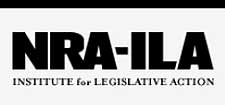

Fairfax, VA – -(Ammoland.com)- Last Thursday, Rep. Evan Jenkins (R-WV) introduced the “Protecting the Second Amendment Act,” H.R. 1976.
This legislation would amend the Gun Control Act (GCA) to permanently prohibit executive actions like the Southwestern Border states’ rifle sales reporting initiative launched under the Obama administration.
The bill states that no federal firearm licensee (FFL) could be subject to any generalized or ongoing reporting requirement based on the FFL’s geographic location or on sales of multiple long guns.
In July 2011, the Bureau of Alcohol, Tobacco, Firearms, and Explosives (ATF) directed thousands of FFLs in Southwestern Border states to file ongoing reports to the government of any sales of two or more rifles of certain types to the same customer within a five day period. This was the third broad-based reporting requirement ATF had imposed under Obama, and it came to be known as Demand Letter 3.
The requirement was supposedly to alert authorities to potential straw purchasers illegally supplying semiautomatic rifles to Mexican drug cartels. Yet the Obama-era ATF had been intentionally letting illegally purchased guns “walk” over the border, at the same time the administration was calling for gun control in the U.S. to stem – so the argument went – violence in Mexico with U.S. origin firearms.
In essence, Demand Letter 3 was an end run around various Congressionally-enacted anti-registration provisions. The Gun Control Act of 1968 requires FFLs to report multiple pistol (but not rifle) sales to the same person. It also authorizes the attorney general to require FFLs to report information from the records they are required to keep. These provisions are meant to facilitate bona fide criminal investigations.
Yet Demand Letter 3 is a broad-based fishing expedition, not a criminal investigation. It also bends the terms of the law by requiring FFLs to create new forms of record-keeping, not just report information from otherwise available records. The requirement has additionally been ongoing for nearly six years, taking on the character of an executive amendment to existing law, rather than a narrowly-confined investigative effort.
H.R. 1976 would end Demand Letter 3 and ensure that no such program could be duplicated, whoever happened to be in charge at the Department of Justice or the White House. As Rep. Jenkins said in introducing the bill:
The federal government has tried to impose a gun registry on lawful gun owners in direct violation of their constitutional rights. I have introduced legislation in the House to stop this intrusion into the lives of responsible gun owners. As a staunch advocate of the Second Amendment, I am proud to stand up for the rights of law-abiding Americans.
We thank Rep. Jenkins for his leadership in this important effort and urge the U.S. House to take up the bill without delay.
About:
Established in 1975, the Institute for Legislative Action (ILA) is the “lobbying” arm of the National Rifle Association of America. ILA is responsible for preserving the right of all law-abiding individuals in the legislative, political, and legal arenas, to purchase, possess and use firearms for legitimate purposes as guaranteed by the Second Amendment to the U.S. Constitution. Visit: www.nra.org
